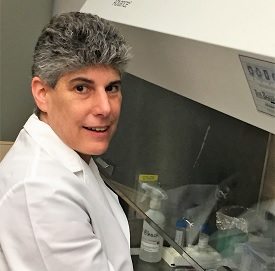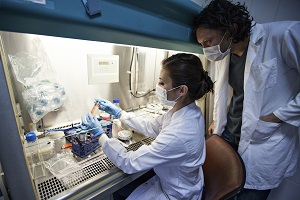
The Urology Care Foundation is a driving force in the discovery of new treatments for bladder conditions by supporting innovative scientists like Margot Damaser, PhD.
Dr. Damaser's Research Scholar Award helped support her training in bladder mechanics, which built the foundation for her current success in bioengineering research in urology. As a result, Dr. Damaser has been able to devote her career to helping patients suffering from urinary incontinence.
Working with a team of urologists and engineers, Dr. Damaser has pioneered the development of new wireless devices that help monitor bladder function, which can be used to diagnose and treat bladder conditions such as urinary incontinence. Their goal is to develop a device that can be gentlely inserted into the bladder (through the urethra) and provide long-term monitoring at home with more comfort. This new device will be able to collect important data about the patient's bladder, which will enable improved individualized and precision therapies, reduce complications and side effects, and reach a greater number of patients suffering from urinary incontinence.
"I am so grateful to the AUA and the Urology Care Foundation for their support of cutting-edge urology research," said Dr. Damaser. "Their efforts continue to improve the lives of patients by helping to foster the careers of so many talented scientists."
Dr. Damaser's lab is also working to develop devices that provide state-of-the-art feedback to notify patients without bladder sensation, such as those with neurogenic bladder, of the need to empty their bladder. After inserted into the bladder, these devices wirelessly communicate to an external device or mobile phone app to notify the patient. Discussion with companies interested in licensing this technology are currently in progress.
Explore Further
For Researchers
Mentored research training awards for young investigators.
Why a Clinical Trial Might Be Right for You
Learn how a clinical trial may be a good option for you with this informative video.



